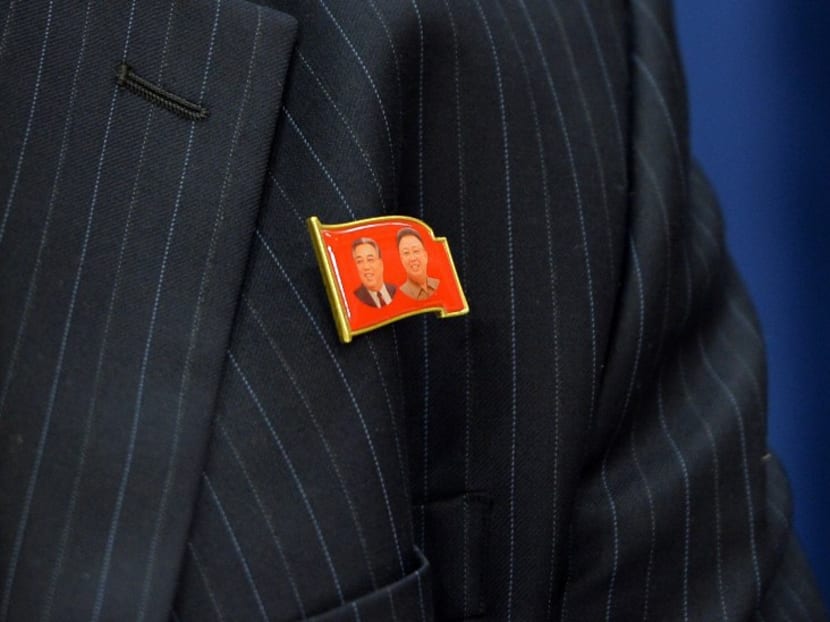Lapel pins with images of ex-N Korean leader found in South
SEOUL — South Korean police found about 200 lapel pins bearing the image of late North Korean dictator Kim Jong-il strewn near the country’s main international airport on Thursday (July 28), police officers said.

A pin worn by North Korea's Ambassador to the United Nations during a press conference on June 21, 2013 at UN headquarters in New York. Photo: AFP
SEOUL — South Korean police found about 200 lapel pins bearing the image of late North Korean dictator Kim Jong-il strewn near the country’s main international airport on Thursday (July 28), police officers said.
Police were analysing security cameras to find how the 196 lapel pins ended up in a flowerbed of a hotel close to Incheon International Airport, just west of Seoul, according to a local police officer who requested anonymity because he wasn’t authorised to speak to the media on the matter.
He gave no further details, but South Korean media said police were looking at a possibility that the lapel pins may have been carried by propaganda balloons that North Korea floated across the border.
The possession of such lapel pins would be illegal in South Korea, where praising North Korea is punishable by up to seven years in prison. North Korea, for its part, enforces strict, state-organised public reverence of the Kim family, which has ruled the impoverished yet authoritarian country since its foundation in 1948.
All North Koreans must wear lapel pins carrying the images of both Kim Jong-il and his father Kim Il-sung or the images of either of them. Portraits of the two Kims hang in public buildings and homes, and their birthdays are the two most important holidays in North Korea.
South Korean officials said they haven’t received any reports that North Korea has produced a lapel pin for current leader Kim Jong-un, who took power after his father Kim Jong-il’s death in late 2011.
A lapel pin with images of both Kim Il-sung and Kim Jong-il is considered more valuable than other pins because it’s the one given to government and military officials and diplomats. Some ordinary citizens buy that pin at unauthorised street markets, according to defectors and activists in Seoul. A Kim Il-sung pin is more used by citizens than a Kim Jong-il pin, they said.
The rival Koreas restarted Cold War-era psychological warfare after the North’s fourth nuclear test in January. Seoul began blaring anti-Pyongyang broadcasts and K-Pop songs via border loudspeakers, and Pyongyang responded by its own border broadcasts and launches of balloons carrying anti-South leaflets.
The rivals are divided along the world’s most heavily fortified border since their war in the early 1950s ended with an armistice, not a peace treaty. AP






